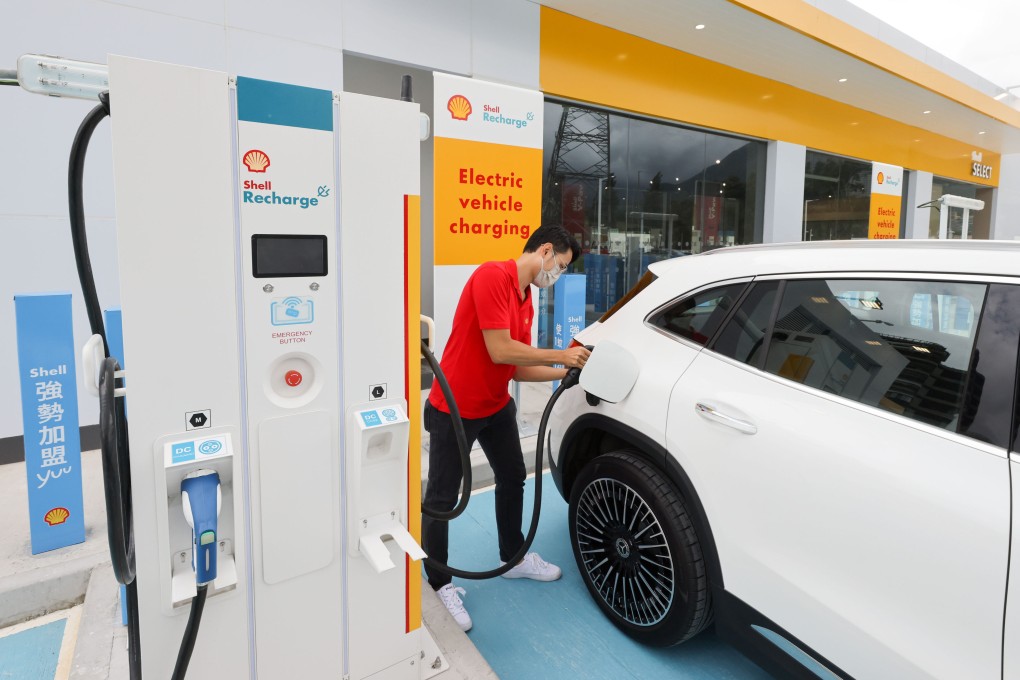Advertisement
Electric cars: petroleum giant Shell aims to open Hong Kong’s first service station that will also offer EV charging facilities
- New facility at airport’s cargo terminal will feature four EV charging points and 16 refuelling positions, and will open by June 30
- Shell has a ‘short-term’ goal of providing more than 300 EV charging points in Hong Kong, executive says
Reading Time:2 minutes
Why you can trust SCMP

The local unit of European oil and gas giant Shell aims to open Hong Kong’s first service station with both electric vehicle (EV) charging and conventional fuel facilities, as it seeks to steal a march on competitors and capitalise on the rising use of EVs in the city.
Advertisement
The new facility at Hong Kong International Airport’s cargo terminal, which was unveiled on Tuesday, will be Shell Hong Kong’s biggest service station in the city. Spanning over 5,000 square metres, it will feature four EV charging points and 16 refuelling positions, and will be pressed into service by June 30.
“This sees Shell become the first mobility solution provider in Hong Kong to offer an inclusive EV charging network, with charging facilities in both car parks and gas and oil stations, to meet a wide range of customer demands,” the company said in a statement.
The new facility launches amid expectations of widening use of EVs in the city. As of January this year, Hong Kong had 28,742 registered private EVs, or 4.4 per cent of its total registered private cars, according to Transport Department data. However, all new cars in Hong Kong could be electric by as early as 2030 – five years ahead of the government’s target – given their accelerated use globally, Owin Fung Ho-yin, deputy director of the Environment Protection Department, said in December last year.

Shell said in December that it had become the first petroleum firm to offer EV charging facilities in the city with the opening of a charging site in Fanling. The company currently operates 41 service stations in Hong Kong.
Advertisement
The city has a total of 183 petrol stations, according to the Consumer Council. Rival Sinopec has a network of 50 stations, followed by Esso’s 43, Caltex’s 32 and PetroChina’s 17.

Advertisement